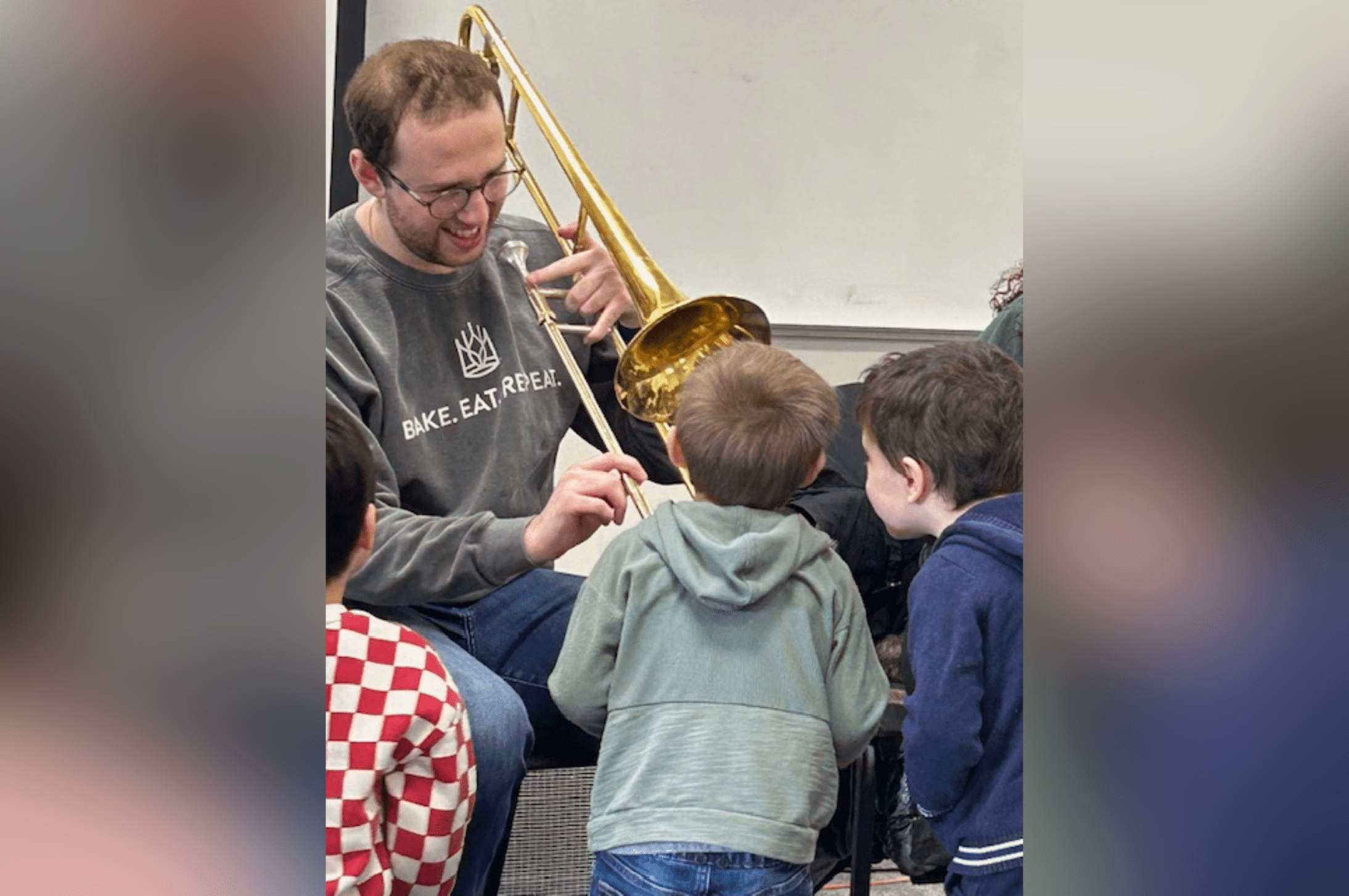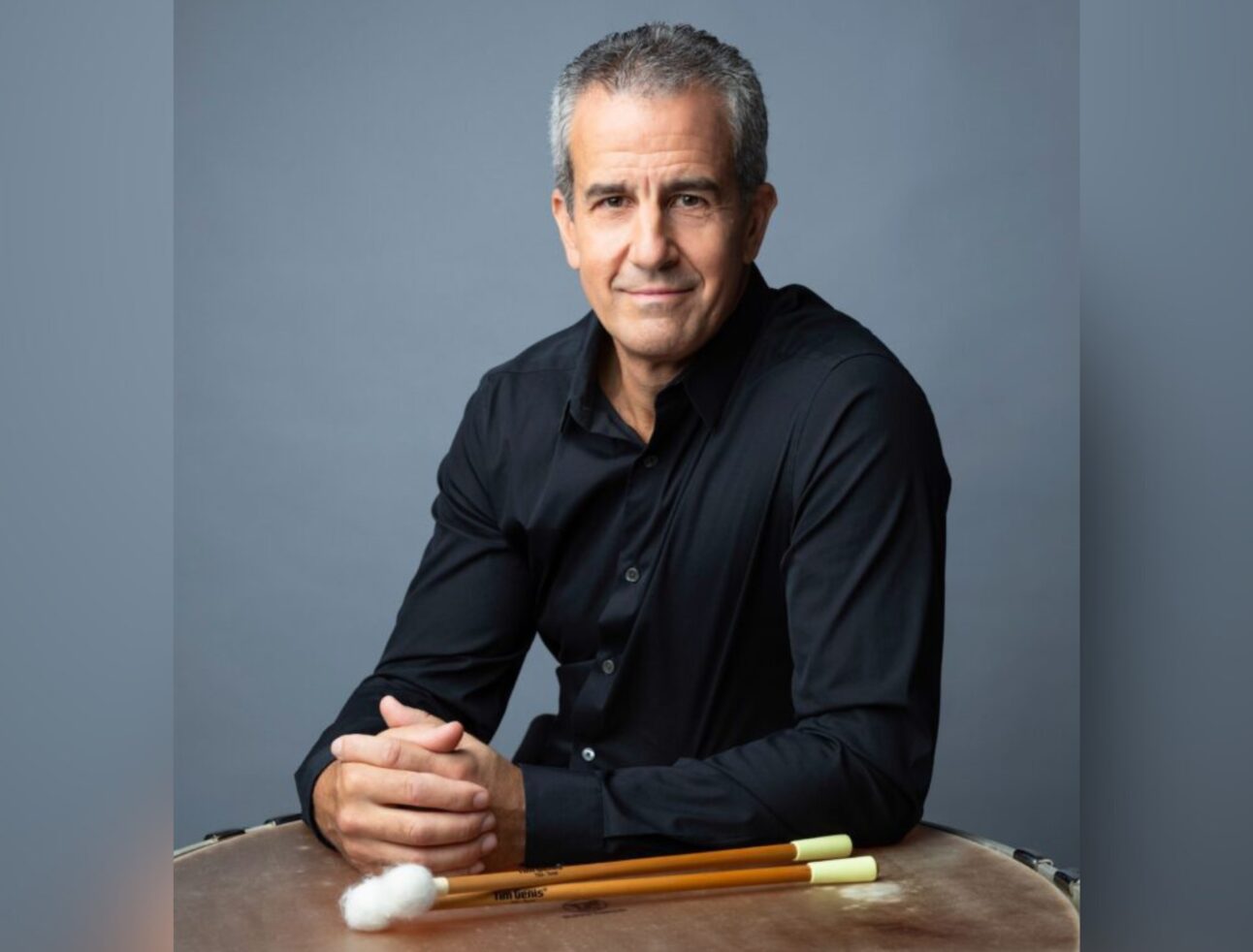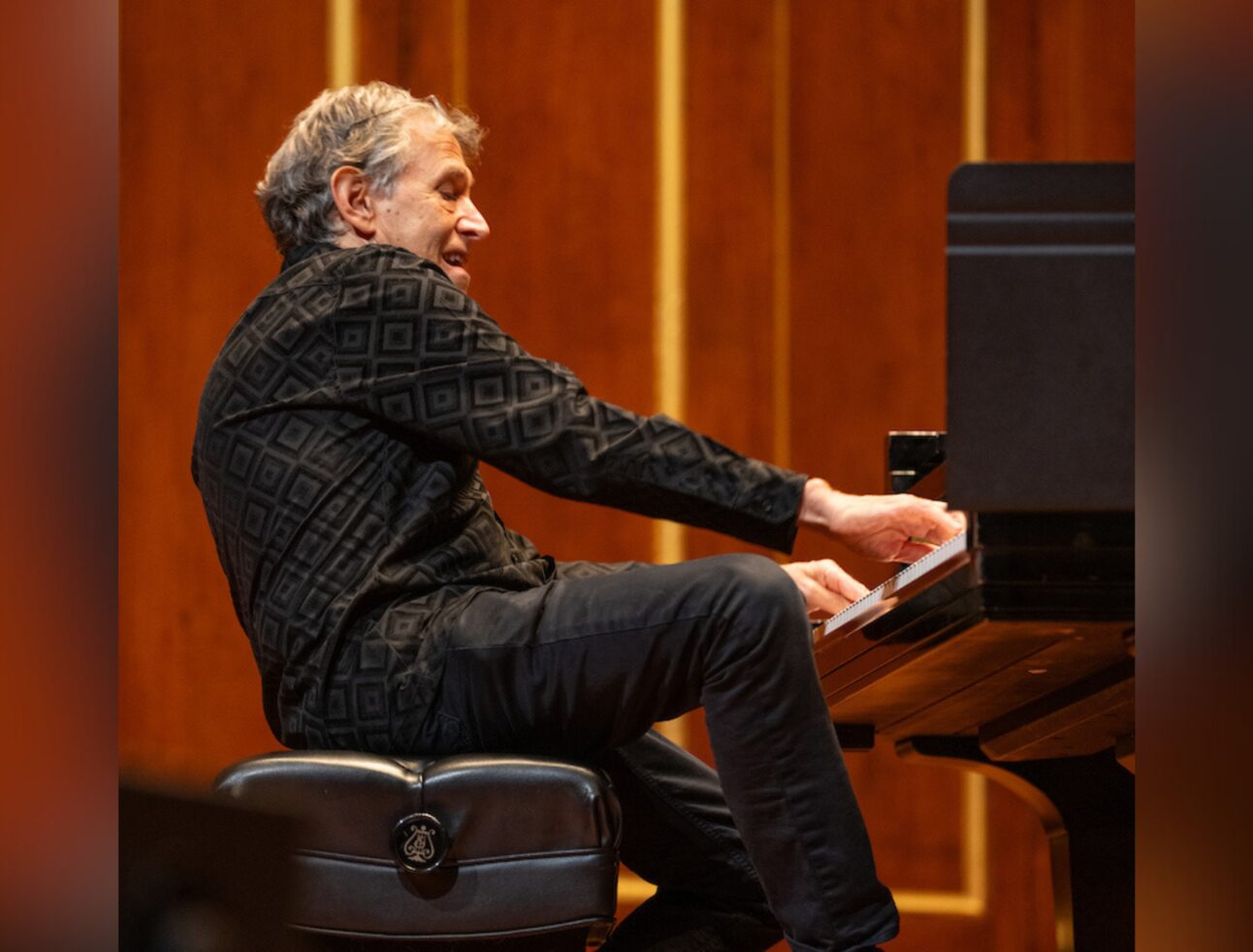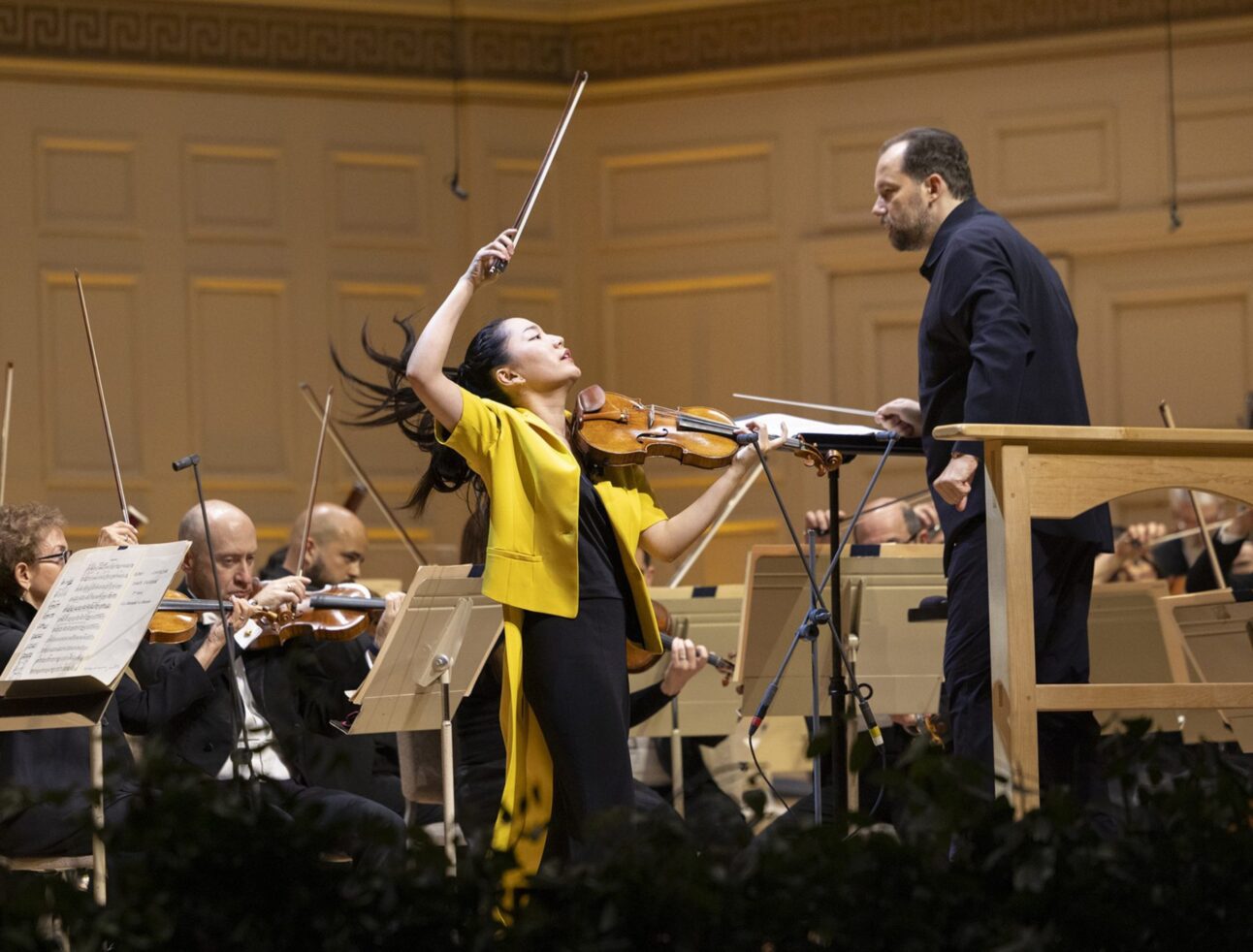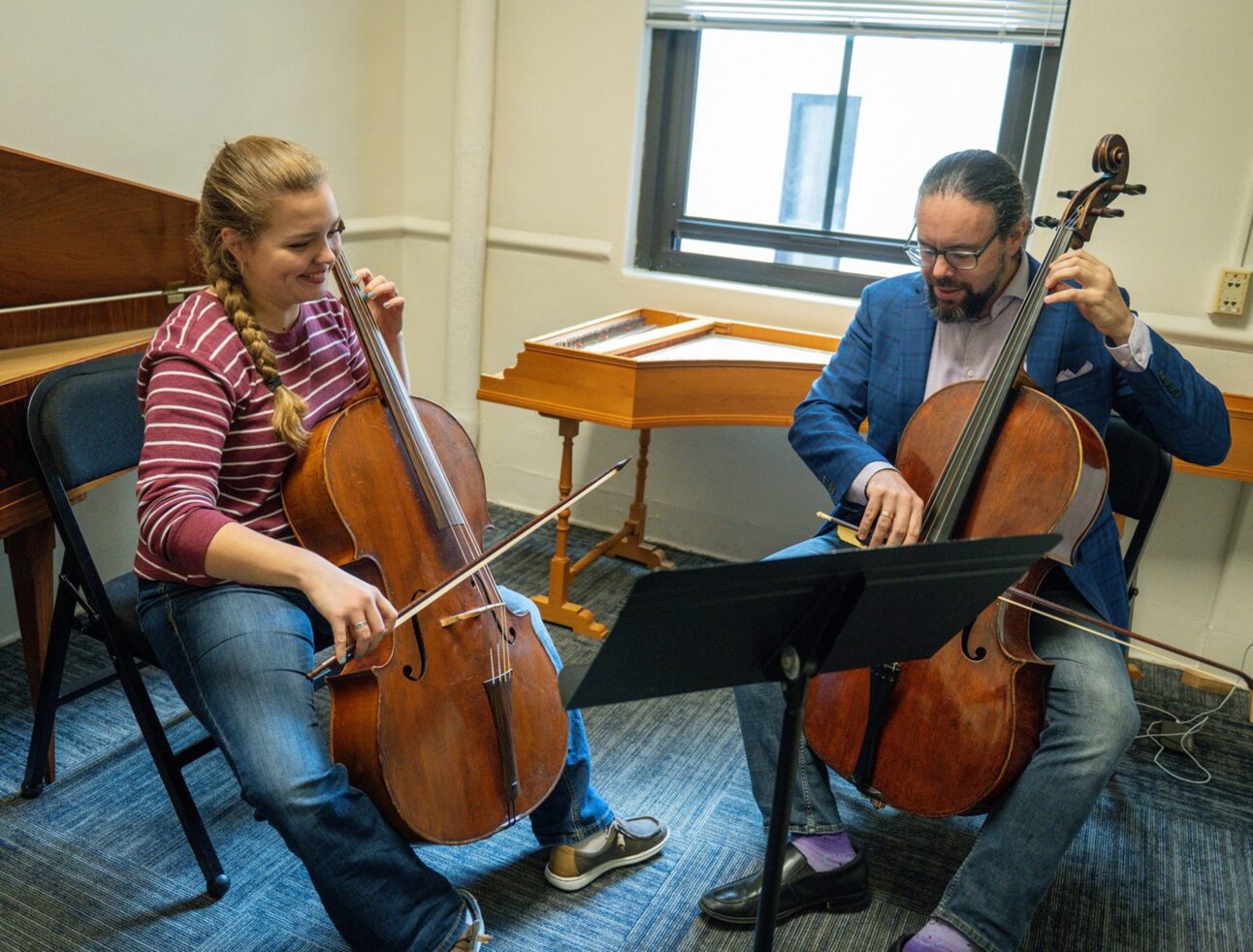Jazz trombonist Aiden Coleman ’25 is pursuing a Teaching Artistry and Music Education Concentration
Violinist Jordan Hadrill ’22, ’24 MM was a graduate student at NEC and working as a teaching assistant in the Boston Public Schools for the Boston Music Project when she enrolled in Michal Shein’s course, Foundations of Teaching Artistry. “I knew I wanted teaching to be at least 50 percent of my life,” Hadrill said. Today, Hadrill continues to teach at the Boston Music Project, as well as in the Community Music Programs at Tufts University and Dexter Southfield School in Brookline, in addition to performing.
It was Shein’s course that motivated Hadrill to declare a Teaching Artistry and Music Education Concentration, a program that was launched in fall 2023. The work required to complete the concentration, she said, helped her feel more confident in any kind of pedagogical situation.
“I think it’s something that everybody should do, honestly, because whether you want to go into teaching or not, it’s important to have as many skills as possible to prepare you for the world,” Hadrill said.
Hadrill got the job at Tufts when she was enrolled in Shein’s course.
“She was able to immediately take what we were doing in class into her weekend job,” Shein ’08 MM, a cellist and NEC alumna who, as a graduate student, was an active participant in NEC’s Community Performances and Partnerships Program, said, explaining, “The future is that all musicians will see themselves as teaching artists.”
When she was a graduate student, Shein perceived performing and teaching as different paths. “It’s hard to know, when you’re graduating, how all these things are going to come together,” she said.
NEC’s Teaching Artistry and Music Education Concentration, Shein said, “gives students awareness of all the different possibilities” and “the tools to step into these different spheres.”
“There’s less delineation between the career paths that a musician may take,” Dean of Community Engagement and Professional Studies Tanya Maggi said. “We are trying to break down the silos between the areas of performer and educator. We’re moving students beyond just thinking about themselves.” The goal is a broader mindset that asks “what it means to be a musician in the world.” (That thinking is also reflected in the design of NEC’s Integrative Curriculum.)
“The fact that they have the distinction on their diploma is an added benefit,” Maggi said.
Completion of the Teaching Artistry and Music Education Concentration, which is administered by NEC’s Community Engagement and Professional Studies Department, involves coursework, participation in workshops organized by the CEPS Department, two years of hands-on CPP fellowships/internships in the Boston community, and a capstone project.
Ken Schaphorst, co-chair of NEC’s Jazz Studies Department, teaches Jazz Pedagogy at the Conservatory and is advising jazz trombonist Aiden Coleman ’25, who’s currently working on his teaching artistry capstone project. Schaphorst is also serving as one of Coleman’s private teachers in the Jazz Studies Department.
“When I was Aiden’s age,” Schaphorst ’84 MM said, “I didn’t imagine I’d be teaching full-time.” Schaphorst studied composition and earned his master’s degree in Jazz Studies from NEC. He later got a job teaching in the Boston Public Schools.
“I think the students in the concentration are going to be much better prepared than I was,” Schaphorst said, explaining that the concentration “is really designed for NEC students who are interested in teaching but are also interested in being a professional player or composer.”
Students in Schaphorst’s Jazz Pedagogy course this semester recently conducted a big band for the first time.
“Most of them had never done that,” he said. “I feel more comfortable sending them into the world knowing they had that opportunity.”
Schaphorst remembers going cold into the Boston Public Schools.
“I had no formal instruction in conducting,” he said.
Today, he’s giving students knowledge and experiences he wishes he’d had.
Coleman, who’s in the final year of the undergraduate Jazz Studies program, is assisting in music classrooms at Patrick J. Kennedy Elementary School in East Boston.
“It’s been a really incredible experience,” Coleman said. “I’ve been really lucky to be thrown into lots of kinds of teaching situations — expanding my definition of the kind of teaching work that I want to do when I graduate.”
Coleman hopes teaching will be part of a career that also includes performing. To that end, the Teaching Artistry and Music Education Concentration, he said, “has really developed my playing, too. Thinking about good ways to explain things to beginner students has changed my playing in ways that I didn’t really expect.”
“Our students are learning as much from the kids they work with as the kids are learning from our students,” Maggi said.
Like Hadrill, Coleman has gained confidence.
“I can stand in front of a classroom of sixth graders and not feel incredibly intimidated,” he explained. The confidence comes from “getting the experience doing it.”
In May, as the academic year comes to a close, 16 NEC students will give public presentations of their capstone projects. Seventeen students in total will graduate this year with the concentration.
“We feel incredible excitement watching these students synthesize their learning through these culminating capstones,” Maggi said. “We know that they will step out into the world as teaching artists who are passionate about making an impact.”
Learn more about NEC’s Teaching Artistry and Music Education Concentration.
